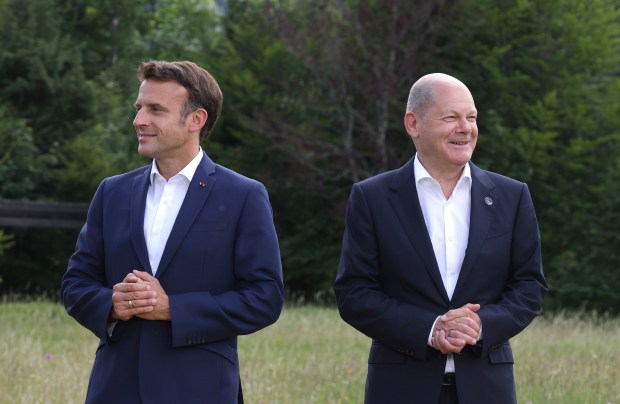The best way to describe Valérie Pécresse is Emmanuel Macron in a blouse. The newly-elected candidate for Les Republicans (LR) swears she is the French president’s polar opposite, but ideologically there is little to separate the pair.
The 54-year-old Pécresse, who will now stand against Macron in next year’s presidential election, has been on the political scene for three decades. She is currently the president of the Paris region, and is not only stinking rich, but a centrist, a globalist and a committed Europhile.
Pécresse was born in Neuilly-sur-Seine, the poshest part of Paris, into an upper middle class family. She shares an Alma mater with Macron, École Nationale d’Administration, the elite technocrat college that is a conveyor belt of European Groupthink.
Like Macron, too, Pécresse is embittered by Brexit and believes those who dared to vote Leave should be punished. In 2017, she threatened a ‘very painful economic future’ for Britain while reaching out to Remainers by saying it would be possible to rejoin.
Two years later, she said in a speech that Britain should be made an example of, ‘because when we leave [the European Union] it should be painful’.
Pécresse is prepared to go to any lengths to protect the EU project. As an MP of Jacques Chirac’s centre-right UMP party in 2005, she was heavily involved in the ‘Oui’ campaign when France had a referendum on the EU Constitution. The ‘Non’ vote won by 55 per cent, a result that shocked and dismayed Pécresse more than most. In July that year she hosted a debate at the National Assembly, entitled: ‘After the Referendum, what perspectives for Europe?’
In her introduction, she said that in her view ‘the question of expansion [of the EU] had not been sufficiently explained to the French’, and therefore the questions she wanted to explore in the debate were: ‘What can we do so that the French love Europe once more? To restore their belief in the European project?’
It was classic Europhile delusion: ask not what is wrong with the E.U, but what is wrong with the people.
Her solution to the victory of the No vote? ‘A new procedure could be proposed to draft a new text’. This is exactly what happened in 2008 when, without consulting the people, the French parliament passed the Lisbon Treaty, which was the EU Constitution rejected three years earlier with another name.
Pécresse also shares an idol with Macron – none other than Angela Merkel. (A strange choice considering the economic damage that Germany has inflicted on France this century.) During her campaign to become the LR’s presidential candidate, Pécresse frequently sang the praises of Mutti, even boasting that she was two thirds Merkel and one third Thatcher.
Pécresse shares Merkel’s disdain for nuclear energy (which produces more than 70 per cent of France’s energy) and wants France to be reliant on renewable energy instead. In 2016, she opened the first wind farm in the Paris region. Incidentally, her husband, Jérôme, is head of General Electric Renewable Energy.
Marine Le Pen reacted to news of Pécresse’s victory by inviting all disappointed Republican voters to join her National Rally party. But Pécresse rejects the idea that she is simply a continuation of the ‘droite molle’, the ‘wet’ wing of the Republicans. In recent debates she has vowed to end France’s 35-hour working week, streamline the sprawling civil service and deport those who enter the country illegally.
If those declarations have a familiar ring to them, that’s because they’ve been parroted by every centre-right politician for the last three decades. Gradually, though, they are always watered down or quietly dropped, either when the strikes start or when the liberal left who, as in Britain, control the institutions and most of the media, wring their hands. Hence the disenchantment felt by millions of French people – on the left and the right–- who believe that no matter where their vote goes, France will forever be governed by a globalist cabal in thrall to Brussels.
‘The right is back!’ boomed Pécresse on Saturday after she was nominated the LR candidate. It’s not. The centre-right has simply chosen a new leader, a woman, which is a first for the party. Ideologically, it’s as you were, and if Macron and Pécresse make it through to the second round, all the electorate will need to decide is whether they want a centrist in a suit or one in a blouse.
Got something to add? Join the discussion and comment below.
Get 10 issues for just $10
Subscribe to The Spectator Australia today for the next 10 magazine issues, plus full online access, for just $10.





















Comments
Don't miss out
Join the conversation with other Spectator Australia readers. Subscribe to leave a comment.
SUBSCRIBEAlready a subscriber? Log in